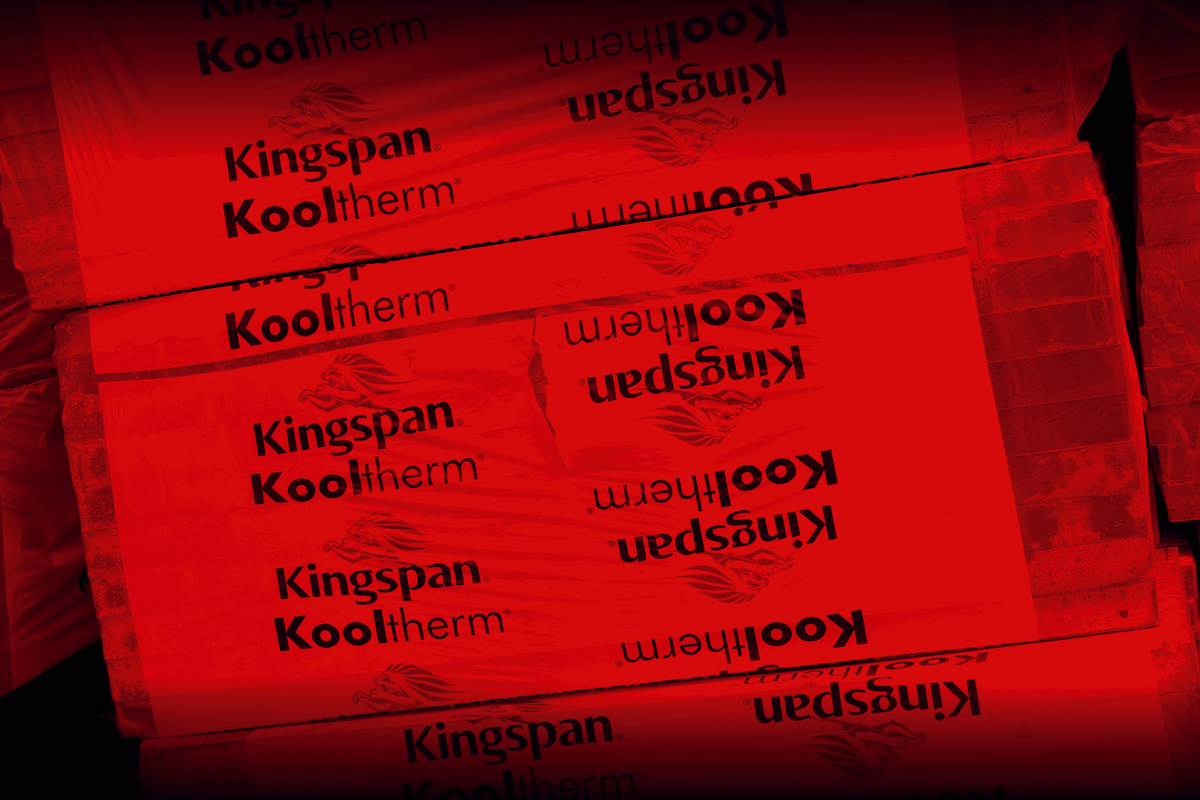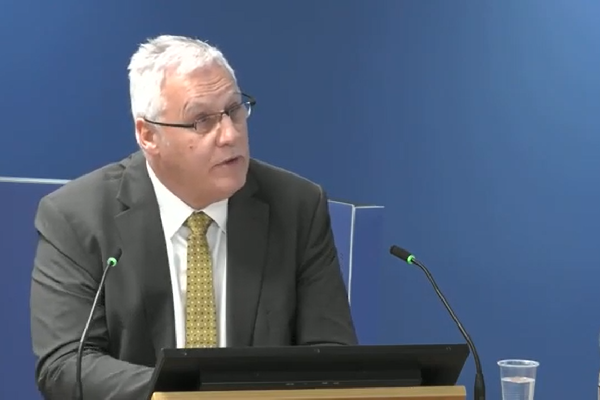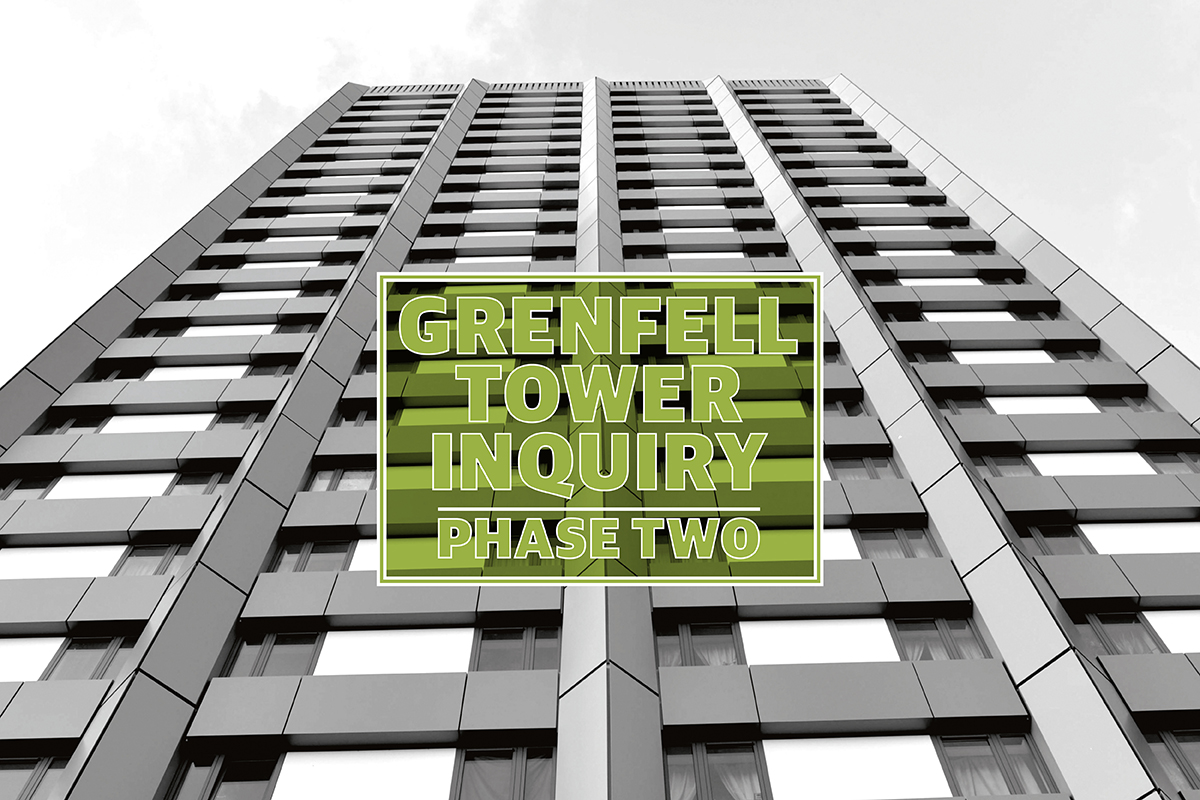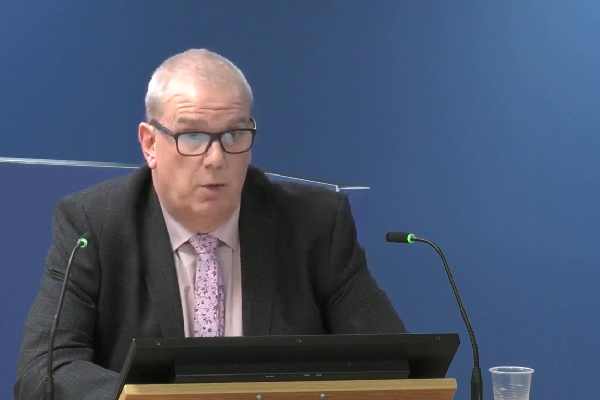Kingspan ordered to halt sales of widely used insulation product following fire test failures
Kingspan has halted sales of a flagship insulation product used on Grenfell Tower, after tests which saw it fail to obtain its advertised fire safety grade triggered intervention from the government’s product safety watchdog.
Sales of K15 insulation, a product widely used throughout the construction sector, have been temporarily halted and Kingspan has been told to inform customers who bought affected batches and implement a return scheme where it has not yet been fitted to buildings.
The giant insulation manufacturer is understood to have informed the government’s Office for Product Safety and Standards (OPSS) on 25 October last year that tests showed the insulation obtaining a class ‘D’ rating under European standards as opposed to the advertised ‘C’.
Further tests carried out by OPSS and Birmingham Trading Standards confirmed the result, with prohibition notices served on the company on 23 December to prevent further supply.
Affected products are being recalled where they have not yet been incorporated into construction projects.
Where it has, clients have been told to check with fire engineers and building control officers to see if the new testing affects the fire safety strategy of the project. If they conclude it does, developers could be forced to undergo costly and time-consuming work to replace the boards.
In a statement to Inside Housing, Kingspan has said more recent testing on the product has seen it obtain the advertised C grade, including a larger-scale test. Even with the D rating, it would not be automatically banned for use on buildings below 18 metres in the UK.
The firm said the issue affected products with an estimated sales value of £150,000.
The OPSS is also understood to have taken issue with the firm’s ‘declaration of performance’ certificates for K15 as part of its investigation.
The watchdog, which is taking over regulation of construction products in the aftermath of the Grenfell Tower fire and the current building safety crisis, is currently understood to be reviewing the marketing of products by manufacturers involved in the fire.
A small amount of Kingspan K15 was used in Grenfell Tower’s cladding system, with the resulting public inquiry exposing shocking evidence about the firm’s testing and certification of the insulation in the years before the blaze.
The latest revelations come at the end of a bruising few weeks for the firm, following criticism from housing secretary Michael Gove, the collapse of a planned sponsorship deal with Mercedes Benz and the government’s recent statement that it may pursue cladding and insulation firms for contributions to the cost of remediating dangerous buildings.
While post-Grenfell changes to regulations mean K15 is no longer permitted for use on high rises, there are no restrictions on its use on blocks below 18 metres, provided that building control inspectors are satisfied the building’s walls would meet the statutory requirement of “adequately resisting the spread of flame”.
This means it is still a market-leading product for low and medium-rise projects, with hundreds of construction jobs around the country likely affected by the revelations.
One developer which has been notified by Kingspan that their project is affected told Inside Housing: “It’s the only experience we have ever had of a letter like this. We have been supplied with the product and have installed it, we are trying to work out what to do next.
“We are speaking to building control to work out what they think first. Certainly, for some people they are going to have to take it out and replace it.
“The cost of replacing it for larger buildings will be in the hundreds of thousands and even for smaller buildings you would need scaffolding etc to take it off.
“There will also be massive delays to construction if you have to replace it. We are talking months for bigger buildings.”
The prohibition notices are understood to apply to the following products:
- On the basis of supply at a lower level of performance than described: all Kooltherm K15 products manufactured between 1 August 2021 and 18 October covered by the declaration of performance dated 2 August 2021, Reference Number 1002.CPR.2013.K15.007
- On the basis of supply without valid declaration of performance or appropriate conformity assessment procedure: all Kooltherm K15 products manufactured from 18 October 2021 covered by the declaration of performance dated 2 August 2021, Reference Number 1002.CPR.2013.K15.007
In a statement, Kingspan said it hopes to resume sales of the insulation this quarter.
The insulation was tested under the single burning item test, an important fire safety assessment across Europe, and obtained a D grade as opposed to the advertised C.
Products obtaining a D-rated materials can burn up three times faster than those with a C classification, with no limit on lateral flame spread or heat release.
Before rules were changed in 2018, K15 was widely used on high-rise buildings, with some now deemed in need of expensive remediation work.
The Grenfell Tower Inquiry has heard that the firm justified the use of the produce on high-rise buildings on the basis of a single 2005 test on a full cladding system. However, this test was not representative of a real-world cladding systems and featured a version of K15 which was no longer on the market.
Later tests on systems incorporating the new version product failed drastically, with one described in an internal document as a “raging inferno”. These were not made public by Kingspan, which obtained certificates that said the product could be used on tall buildings based on the 2005 pass.
This 2005 test was withdrawn by the manufacturer in October 2020, just before the inquiry’s revelations were made public.
The inquiry has seen evidence that Kingspan dismissed challenges to the suitability of its insulation for high rises before Grenfell, with a manager writing at one stage that critics could “go fuck themselves or we will sue the arse off them”.
The firm has emphasised that K15 has passed many large-scale tests since the Grenfell Tower fire.
In a statement, Kingspan said: “Following communication from the Office for Product Safety and Standards (OPSS) in the UK, Kingspan Insulation has taken swift action to commence the return of certain batches of K15 produced between August and December 2021 with an estimated sales value of £150,000.
“This only applies to product which has not been installed on buildings; any product which has already been installed is unaffected.
The action is due to two matters referenced by the OPSS. The first pertains to batches of K15 which returned Euroclass D when tested at a small-scale (by Kingspan and OPSS respectively.
“However, subsequent SBI [single burning item] tests of the same batches of K15, commissioned by Kingspan in accredited independent laboratories, achieved Euroclass C, consistent with the product’s declaration of performance (DOP).
“Given that the batches concerned also achieved C classifications in more stringent large-scale ISO 9705 tests, Kingspan is confident that there is no product safety issue.
“The second matter relates to a technicality with the system of issuance of K15’s DOP. While Kingspan believes it met the appropriate guidance, we are in the process of completing a new DOP to satisfy the OPSS’s requirements. We are very confident we will meet these requirements, and pending approval from the OPSS, we expect to resume distribution of K15 in quarter one 2022.
“K15 is delivered directly to specialist installers on site, and Kingspan’s traceability system enabled us to notify all affected customers swiftly. Kingspan will work with and support customers through this process.”
A spokesperson for the Department for Levelling Up, Housing and Communities said: “As part of its ongoing investigation, the Office for Product Safety & Standards (OPSS) has issued Kingspan with notices to stop the supply of certain products, which have been found to have lower fire safety performance levels than as described when sold.
“Kingspan have been told to inform customers who have purchased these products immediately.
“We will continue to support both the OPSS, as well as regulatory partners, in taking the necessary steps to protect people and places.”
Has your organisation, or any of your projects, been affected by the halting of K15 sales? If so, contact jack.simpson@insidehousing.co.uk.
Sign up for our fire safety newsletter
Already have an account? Click here to manage your newsletters




